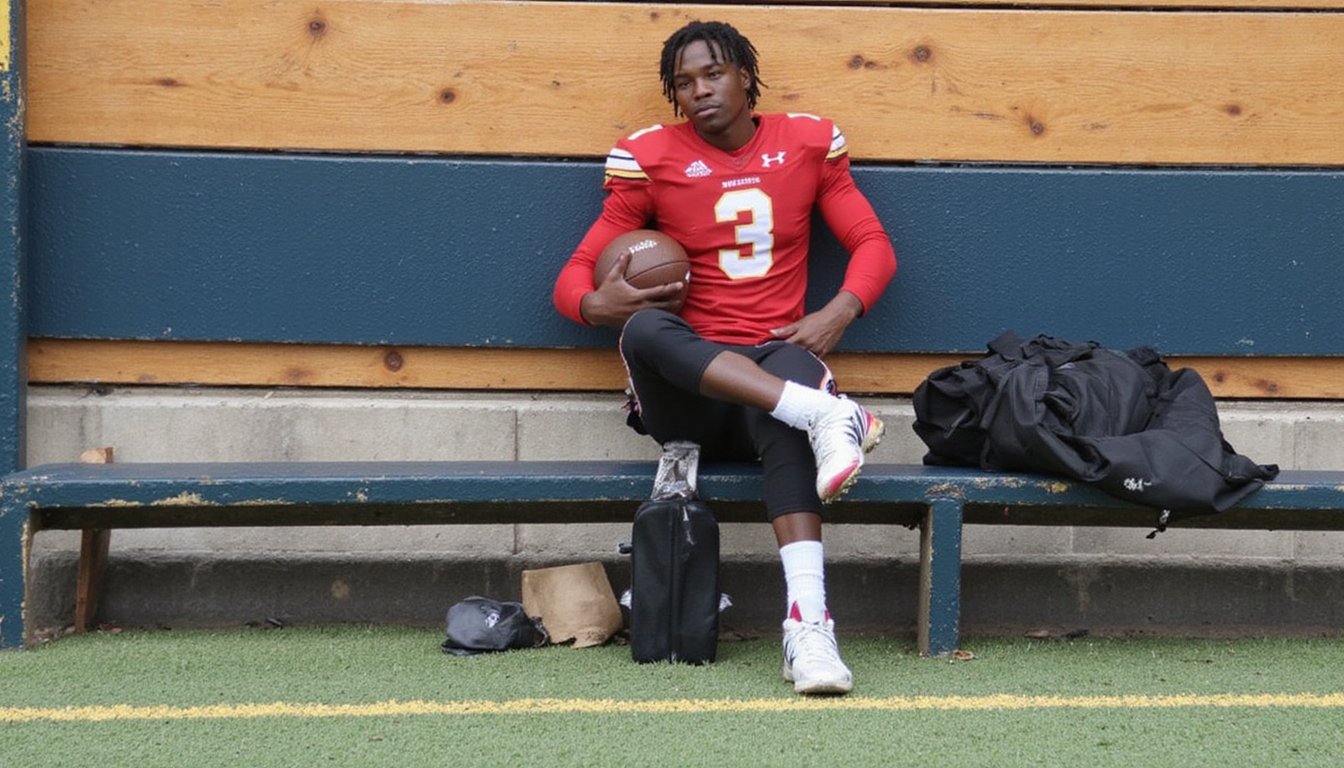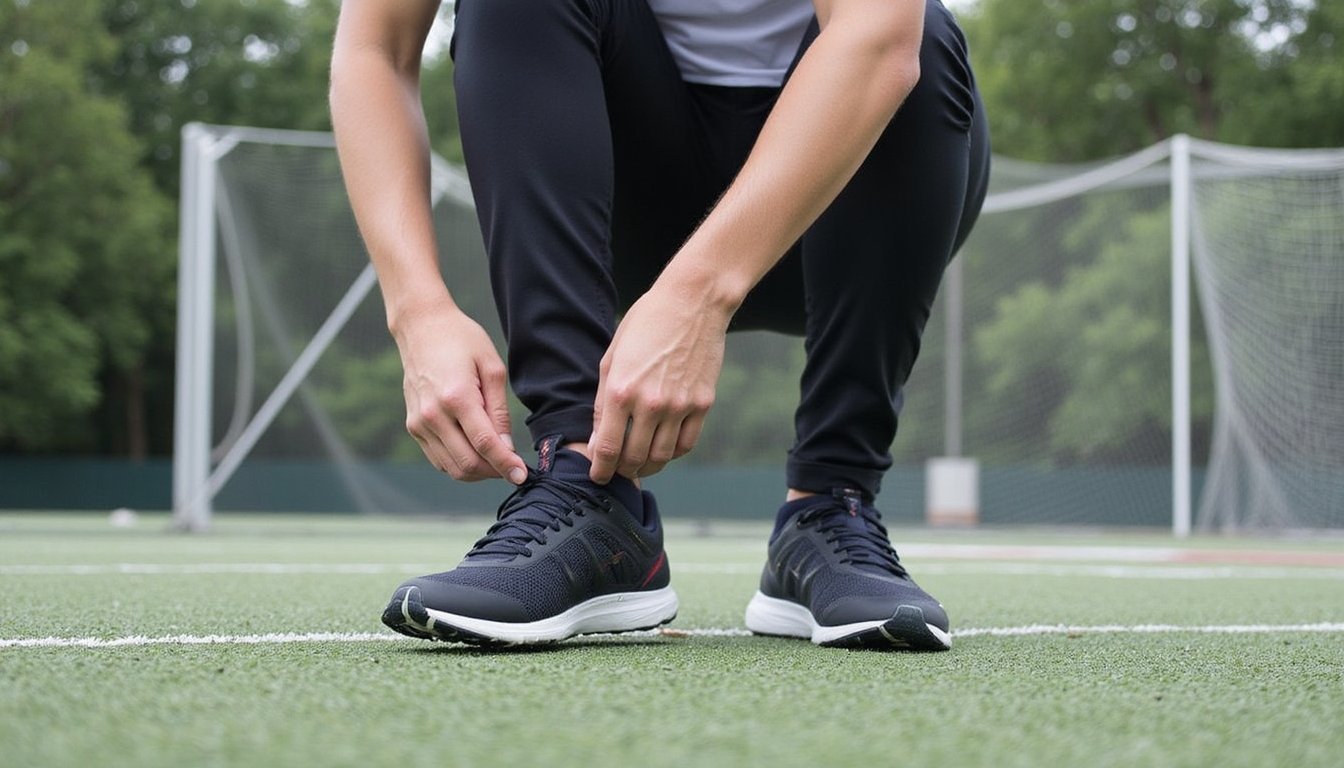Playing sports can elevate your psychological well-being through improved self-esteem, stronger support networks, and heightened emotional regulation. However, you’ll face significant challenges, as 91% of athletes experience stress from performance pressure and fear of failure. Your mental health outcomes depend heavily on factors like training intensity, recovery time, and the quality of your support system. Understanding these complex dynamics helps you optimize benefits while minimizing psychological risks in athletic participation.
The Mental Health Benefits of Athletic Participation

While many people recognize the physical benefits of sports participation, research consistently demonstrates its profound impact on mental well-being. Studies show that your psychological well-being outcomes improve considerably when you engage in athletic activities, particularly in team environments. You’ll experience lower rates of anxiety and depression, with female athletes showing mental health disorder rates up to 2.5 times lower than non-participants. Research indicates that participating in outdoor sports activities significantly improves various aspects of mental health compared to indoor activities. Notably, female adolescents report higher levels of anxiety and depressive symptoms compared to male athletes, leading to increased dropout rates from sports participation. Individual sports can create unique challenges, showing increased attention problems by 14% compared to non-participants.
The motivational climate importance becomes evident through organized sports’ ability to elevate self-esteem and body appreciation. You’ll find that longer participation, especially 4-5 years in duration, strengthens these mental health benefits. Team sports specifically lead to 19% lower withdrawn/depressed scores and create essential psychological support networks. The evidence suggests that consistent athletic engagement serves as a powerful tool for enhancing your general mental health resilience.
Understanding Sports-Related Psychological Stress
Although athletic participation offers numerous mental health benefits, sports-related psychological stress affects an overwhelming 91% of high school athletes. Self-pressure (66.5%) and fear of failure (64%) emerge as the primary stressors, manifesting through physical symptoms like increased heart rate and sweating, alongside psychological impacts including anxiety and depression. Individual and contact sports tend to generate higher levels of both mental and physical anxiety among participants. Recent studies show Division III athletes experience the highest rates of mental health challenges compared to other collegiate divisions.
While 34% of athletes report that stress improves their performance, the majority struggle with its effects. Despite the prevalence of stress-related symptoms, 78% of affected athletes don’t receive help. Most turn to friends (50%) rather than seeking professional support services, often due to stigma or access barriers. Without proper coping strategies, athletes may develop maladaptive responses that can lead to chronic mental health issues and withdrawal from sports. Exercise remains the most common stress management technique, used by 55% of athletes. A concerning 60 percent of athletes experience moderate to extreme stress levels due to their sport participation.
Social Dynamics and Emotional Development in Sports

Beyond managing psychological stress, sports create a rich environment for social and emotional development. Through regular participation, you’ll experience opportunities for emotional regulation while building essential social connections that foster community integration. Research shows that sports environments provide structured settings where you can develop coping strategies and interpersonal skills that transfer to other life areas. Significant figures, like coaches and instructors, play a crucial role in guiding emotional development and self-perception. Recent studies involving sport education programs demonstrate significant improvements in students’ social-emotional competencies over traditional physical education approaches. Athletes benefit from multiple support types throughout their development, particularly from their families, coaches, and peers.
- Your family’s support shifts from emotional to informational as you progress, while peer relationships become increasingly influential in shaping your motivation and confidence
- Team sports specifically bolster your capacity for cooperation, empathy, and conflict resolution
- Sports offer frequent opportunities to practice managing frustration and disappointment, leading to improved emotional intelligence and self-control
However, be aware that negative social dynamics in sports can sometimes amplify existing difficulties, particularly for those from challenging backgrounds.
Key Factors That Influence Mental Well-being in Athletes
What makes the difference between positive and negative mental health outcomes in athletes? Research shows it’s a complex interplay of several key factors within sports environment norms. Your social support network greatly impacts mental well-being, with team sports typically offering more protective benefits than individual sports. You’ll find that training demands intensity can trigger psychological distress, especially when combined with insufficient recovery periods. The research across various athletes shows that psychological well-being scores significantly influence overall athletic performance. Studies reveal that mindfulness practice consistently improves athlete well-being and reduces injury occurrence.
The pressure to perform and maintain athletic identity can heighten your risk of anxiety and depression, particularly in environments where mental health stigma persists. Athletes experiencing sluggish play and fatigue often struggle with maintaining peak performance levels. Your vulnerability increases during major changes, injuries, or when facing intense competitive pressure. Body image concerns become more prevalent in aesthetic-focused sports, while overtraining and isolation can compromise your psychological resilience. Understanding these factors helps identify when you need support and intervention.
Building Resilience Through Sports: Risks and Rewards

Three critical dimensions shape how sports build psychological resilience: the intensity of challenges, the support system’s quality, and individual adaptability factors. When you participate in sports, your individual stress thresholds determine how effectively you’ll develop coping mechanisms. Research shows that customized intervention strategies work best, as uniform approaches often fail to address unique needs. Sport psychologists can create optimal psychological environments that nurture resilience development. The development of resilience through sports represents an ordinary magic that emerges through supportive environments and relationships.
Personalized support and appropriate challenge levels in sports create the optimal conditions for building lasting psychological resilience.
- Recreational environments typically yield better social and emotional gains than high-pressure competitive settings
- Moderate adversity exposure strengthens resilience, while excessive stress can overwhelm coping capacities
- Self-managed activities and structured reflection improve problem-solving abilities
You’ll find that sports-based resilience building works best when there’s a balance between challenge and support. This careful calibration helps you develop adaptive skills that transfer beyond athletics into daily life challenges. Children who play multiple sports demonstrate higher levels of resilience compared to those focusing on just one activity.
Frequently Asked Questions
How Do Retired Athletes Cope With the Transition Away From Sports?
You’ll cope best with sports retirement by making gradual lifestyle adjustments and maintaining strong social connections. Research shows that joining career shift programs, establishing new daily routines, and pursuing activities outside athletics substantially improve your adaptation. You should prioritize building relationships beyond sports, exploring educational opportunities, and developing new hobbies. Mental health counseling can help you process identity changes and develop effective coping strategies during this shift.
Can Sports Participation Help Individuals Recover From Existing Mental Health Conditions?
Yes, you can recover from mental health conditions through sports participation. Research shows that engaging in sports activities provides significant stress reduction benefits and improved self-esteem, which directly support recovery processes. You’ll experience amplified social connections and develop coping mechanisms through structured physical activity. Team sports are particularly effective, showing stronger outcomes for reducing symptoms of depression and anxiety compared to individual sports. However, you’ll achieve ideal benefits in supportive, non-pressure environments.
What Role Do Parents Play in Managing Young Athletes’ Mental Health?
Parents play a pivotal supportive role in safeguarding young athletes’ mental health through their behaviors and attitudes. When you’re a parent, you’ll need to balance encouragement without creating excessive pressure. You’re also indispensable for mental well-being monitoring, as you’re often the foremost to notice behavioral changes indicating potential concerns. Your approach should emphasize autonomy-supportive parenting, constructive feedback, and unconditional support rather than performance-based criticism to foster positive psychological outcomes.
How Do Cultural Differences Affect Mental Health Outcomes in Sports Participation?
Your cultural background profoundly shapes how sports affect your mental health. You’ll experience different cultural pressures based on your origin; European athletes typically report lower stress levels than Asian athletes. Social stigmas around mental health and help-seeking behaviors vary widely across cultures, impacting your willingness to seek support. If you’re from a collectivist culture, you’ll likely benefit more from team sports, while individualistic cultures may emphasize personal achievement differently.
When Should Athletes Seek Professional Mental Health Support During Their Career?
You should seek professional mental health support when symptoms persist for more than two weeks, particularly during early career challenges and off-season mental health shifts. Don’t wait if you’re experiencing persistent mood changes, sleep disturbances, or thoughts of self-harm. It’s vital to reach out when you notice declining performance unrelated to physical condition, increased substance use, or if you’re struggling to cope with major life events or competitive pressures.





